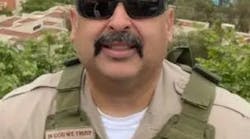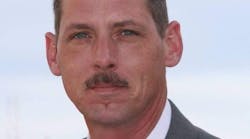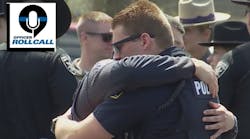Let's talk a little bit about unreported missing persons. Those are individuals who are not placed on the National Crime Information Center (NCIC). Who are they and why aren't they represented on NCIC?
These individuals are many times old enough to disappear voluntarily. Think about the guy who has been estranged from his family for decades and has few, if any friends. Or the mentally ill family member who is living homeless in another city and whose relatives have no idea of the person's whereabouts. Or the illegal alien, the person who should not be in this country, and whose relatives are either afraid to report him as missing or are in another country and don't realize he's vanished.
There are other categories, too. Like the missing child that no one knows about; The mother who drifts from town to town, starting with four kids, but moving into the newest place with only three.
What about individuals who work traveling jobs with a subculture of its own? Carnival workers, itinerant workers who follow the jobs and seasonal workers are good examples.
There are also teenage runaways - kids who've made it a habit from their earliest teen years - who are now of age and there's every reason to believe the child left of his or her own accord.
In addition to the ocean of official missing persons - those on NCIC - there are uncounted thousands who have disappeared without a trace, or official report. One good example of such a case is the sad story of a toddler known at first as "Baby Grace."
You may recall that Baby Grace was the name given to a tiny little girl whose body was found on Oct. 29, 2007, by a fisherman. The fisherman found the child in a plastic container, washed ashore on an island in West Galveston Bay in the state of Texas. The little girl was initially described as between 2 and3 years old and dressed in a pink and white outfit.
The child had been dead for months. At the time, investigators did not realize that, in addition to spending two months in the bay, her body has been kept in a shed for at least six weeks. The decomposition made her difficult to identify, but a forensic artist named Lois Gibson (one of the real heroes in the effort to connect unidentified remains to their previous living, breathing lives) captured Baby Grace in a drawing that was distributed on the Internet, in newspapers and magazines, and on television.
Five days after the press received the sketch, police received a lead. Sheryl Sawyers, grandmother of little Riley Ann Sawyers, called the police and tentatively identified the unknown child as her granddaughter.
According to investigators, the child's mother, Kimberly Trenor, violated a custody agreement she had with Riley's biological father - Sheryl Sawyer's son. Trenor apparently moved to Texas and married a man named Royce Ziegler.
After the couple's arrest, investigators learned the truth about Riley's death: Trenor described to police how the child was beaten, sometimes with belts, her head held under water, her small body thrown to the floor.
Riley Ann Sawyer flew under the radar of police because her mother, Trenor, was unknown in Galveston. Although the child was missing in Ohio, no one there knew where Trenor had taken the baby.
The individuals charged in this case will eventually go to trial. Recently Trenor gave birth to a little boy fathered by Ziegler. That child has been placed in temporary custody of other family members.
Riley Sawyers is the perfect - and most tragic - example of a missing unreported person. How many more Rileys are out there? How many missing children or infants have never been reported? It's a haunting question that is usually only brought to the public arena when a high visibility case like this one appears. While one would have to be made of stone not to feel outrage and sorrow at the fate of a small child, there's another group of people who often fall off the radar of both the public and law enforcement: the untreated mentally ill.
Vast portions of the homeless populations in many cities are derived from those who suffer from mental illness or deficiency. I am a living witness to this. My late mother, a victim of vascular dementia (which closely resembles Alzheimer's), was detained by a family friend who spotted her entering the bus station. Mom had no identification on her and just enough money to buy a bus ticket to Savannah, Ga., where she knew not a single soul. Mom had been fixated on Savannah since she read a magazine article about the city and had awakened one day and decided to move there. All she had with her was a small bag containing clothes and toiletries and her purse. Like I said: No ID. No money. My mother was on her way to becoming homeless. She lived with a relative. Saw a doctor regularly for her illness, and yet none of us saw this coming.
We were fortunate the friend caught her. If he hadn't my mother probably would have turned up dead in Savannah at some point and no one would have been able to identify her.
Outpost for Hope is an organization that works to illuminate the problem of unreported missing persons, which include children like Riley Sawyers and vulnerable adults like my mom. They offer assistance to individuals who are searching for a loved one, as well as agencies and the media. And they serve an "invisible" population that has slipped through the cracks for decades.
Since I include a link to a missing person or unidentified remains in each of my blog posts, I've decided to continue the practice here. Take a look at this old case from Sumter, S.C. (linked below) and see if you know either of those individuals.


